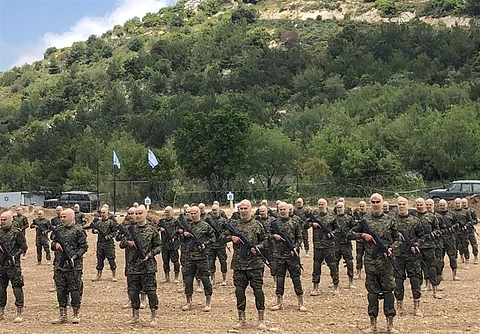

The Lebanese government has delayed a decision on whether to pursue the disarmament of Hezbollah, postponing further discussion until August 14 in order to prevent heightened political tensions.
On Tuesday, the cabinet led by President Joseph Aoun met at the presidential palace in Baabda to debate the issue but failed to reach a resolution. The delay comes amid growing internal divisions and external pressure from the United States and Israel.
Later that day, Hezbollah General Secretary Naim Qassem delivered a televised speech rejecting any disarmament efforts. He stated that such discussions can only occur after Israel withdraws from all Lebanese territory it currently occupies. He also accused Israel of consistently violating the ceasefire agreed to last November, which Hezbollah continues to uphold.
Qassem added that even if Hezbollah were to disarm, Israel would never pursue peace with Lebanon. Hezbollah and other armed factions in the country have long insisted that the Lebanese state must first be capable of defending its sovereignty and protecting its citizens before any consideration is given to surrendering weapons.
The debate over Hezbollah's role in Lebanon intensified following the 2024 Israeli assassinations of former Hezbollah leader Hassan Nasrallah and much of the group's senior leadership. The resulting power vacuum led to the election of Joseph Aoun as president in January. Aoun, widely viewed as pro-U.S. and open to appeasing Israel, has made the disarmament of Hezbollah a central tenet of his administration.
In his inaugural address on January 9, Aoun declared his intent to “affirm the state's right to a monopoly on the carrying of arms.” In a speech last Thursday, he reiterated, “The state alone will maintain control over weapons in Lebanon,” emphasizing that the policy is “final and irreversible.”
The Lebanese government remains under significant pressure from both Washington and Tel Aviv. Israel has issued warnings of potential military action, while U.S. envoy to Syria Tom Barracks caused controversy last month by stating that Syria might intervene in northern Lebanon if Hezbollah is not disarmed—a comment widely interpreted as a veiled threat, despite his later attempt to walk it back.
However, the viability of any disarmament campaign remains uncertain. The Lebanese Armed Forces are considered incapable of successfully confronting Hezbollah in open conflict. Moreover, given that a significant portion of the military is composed of Shia Muslims, analysts warn that many soldiers may choose to desert or defect rather than engage in combat against fellow Lebanese.